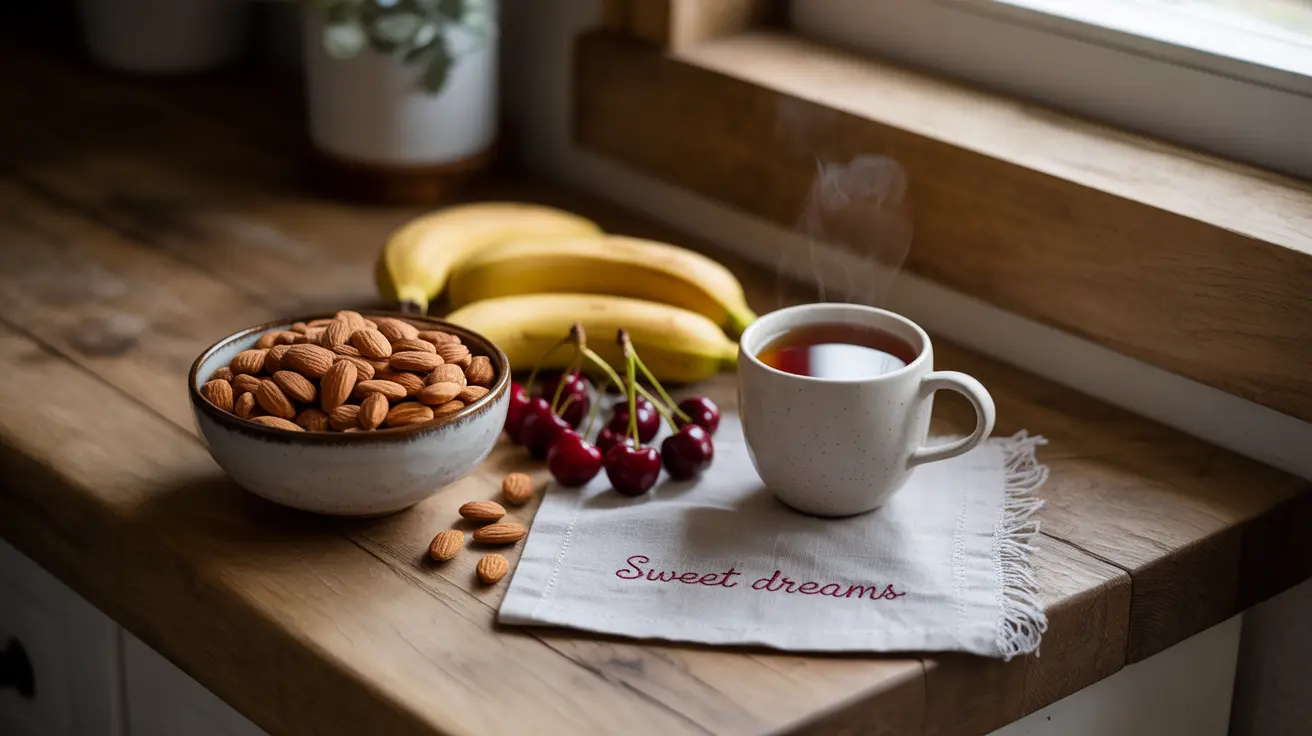Getting quality sleep is essential for overall health and well-being, and what you eat before bed can significantly impact your sleep quality. The right bedtime snacks can help promote better sleep by providing key nutrients that support your body's natural sleep-wake cycle.
Understanding which foods can help you drift off to dreamland—and which ones might keep you tossing and turning—is crucial for developing healthy nighttime eating habits. Let's explore the science-backed snacks that can help you get the restful sleep you deserve.
Sleep-Promoting Nutrients in Bedtime Snacks
Several key nutrients play important roles in promoting quality sleep:
Tryptophan and Serotonin
Foods rich in tryptophan help your body produce serotonin, which then converts to melatonin—your body's natural sleep hormone. Turkey, dairy products, and nuts are excellent sources of this essential amino acid.
Magnesium and Other Minerals
Magnesium helps relax muscles and calm the nervous system, making it easier to fall asleep. Foods like almonds, pumpkin seeds, and bananas are rich in this important mineral.
Complex Carbohydrates
The right carbohydrates can help make tryptophan more available to your brain, potentially improving sleep quality. Whole grain crackers or oatmeal are excellent choices.
Top Sleep-Friendly Snack Combinations
Fruit-Based Options
Several fruits have natural sleep-promoting properties:
- Tart cherries (natural source of melatonin)
- Kiwis (high in serotonin)
- Bananas (rich in magnesium and potassium)
Protein-Carb Combinations
These balanced snacks provide sustained energy without disrupting sleep:
- Greek yogurt with honey
- Apple slices with almond butter
- Whole grain toast with turkey
- String cheese with whole grain crackers
Calming Beverages and Accompaniments
Some drinks can complement your bedtime snack:
- Warm milk with cinnamon
- Chamomile tea with a small honey drizzle
- Golden milk (turmeric latte)
Timing and Portion Control
The timing of your bedtime snack matters as much as what you eat. Consume your snack about 30-60 minutes before bedtime, keeping portions modest—around 150-200 calories. This allows time for initial digestion while preventing discomfort that could disturb sleep.
What to Avoid Before Bed
While choosing the right snacks is important, knowing what to avoid is equally crucial:
- High-fat foods that take longer to digest
- Spicy foods that might cause heartburn
- Caffeine-containing foods or beverages
- Large portions that could cause discomfort
Frequently Asked Questions
What are the best snacks to eat before bed to improve sleep quality?
The best bedtime snacks combine complex carbohydrates with a small amount of protein. Examples include Greek yogurt with berries, whole grain crackers with cheese, or a small banana with almond butter. These combinations help promote sleep without overloading your digestive system.
How do magnesium-rich foods like almonds and bananas help with sleep?
Magnesium acts as a natural relaxant, helping to calm the nervous system and reduce muscle tension. It also helps regulate melatonin production. Foods like almonds and bananas provide this essential mineral, making them excellent choices for promoting better sleep.
Can eating fruits such as cherries or kiwis really help me fall asleep faster?
Yes, certain fruits can help improve sleep quality. Tart cherries are a natural source of melatonin, while kiwis contain serotonin and other sleep-promoting compounds. Studies have shown that consuming these fruits regularly may help reduce the time it takes to fall asleep.
What are some easy and healthy bedtime snack ideas that promote relaxation?
Simple, sleep-friendly snack options include a small handful of almonds and dried cherries, a banana with peanut butter, oatmeal with milk and honey, or whole grain toast with turkey. These combinations provide the right balance of nutrients to support quality sleep.
Is it better to eat a bedtime snack with protein, carbohydrates, or both for better sleep?
A combination of both protein and complex carbohydrates typically works best for promoting good sleep. The carbohydrates help make tryptophan more available to the brain, while protein provides the tryptophan itself. This combination helps support sustained sleep throughout the night.




